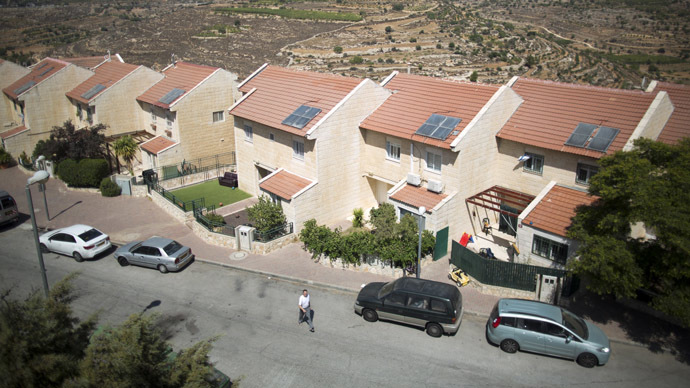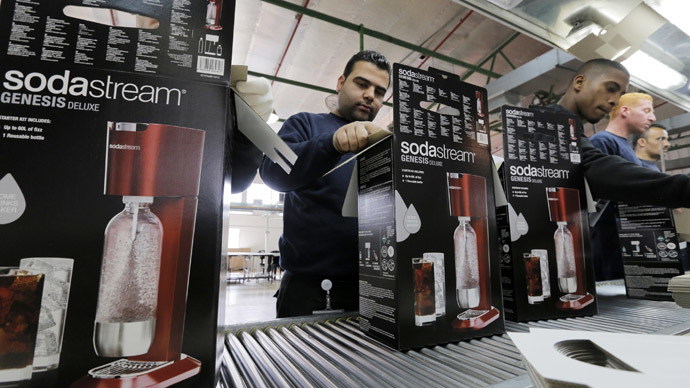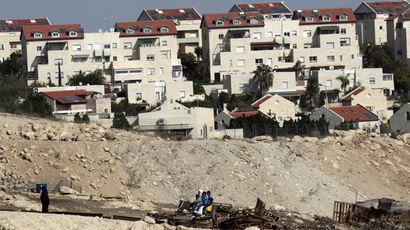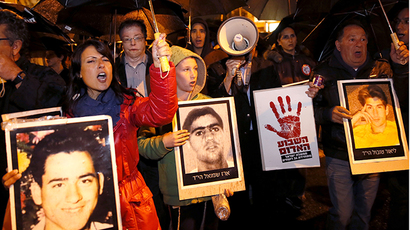Israeli govt, businessmen to meet over global boycott threat

Amid faltering peace talks between Israel and the Palestinians, Israeli politicians and business leaders are forced to consider a host of international boycotts that threaten to damage the economy of the Jewish state, local media reveal.
Israeli Cabinet ministers are set to meet next week to address a
growing international campaign to boycott trade over ongoing
Jewish settlement construction in the occupied West Bank, Israeli
daily Haaretz reported.
In the latest development, Norway’s Finance Ministry directed its
$810 billion sovereign wealth fund to blacklist two Israeli firms
“due to contribution to serious violations of individual rights
in war or conflict, through the construction of settlements in
east Jerusalem.”
Israel’s Foreign Ministry had no comment on the matter, The
Jerusalem Post reported.
The European Union recently moved to block funding to any Israeli
organization operating on settlements built on Palestinian land
seized during the Six Day War of 1967, which is viewed by the
international community as illegal.
The criticism has even reached into the upper star-studded strata
of Hollywood. American actress Scarlett Johansson, who has come
under criticism over her ad campaign for a company that operates
out of the occupied territories, has stepped down as Oxfam
ambassador.
Finally, James Rawley, UN humanitarian coordinator for the
Palestinian territories, criticized Israel's demolition on
Thursday of 36 homes in the Jordan Valley that displaced 66
people, including 36 children.
"I am deeply concerned about the ongoing displacement and
dispossession of Palestinians... along the Jordan Valley where
the number of structures demolished more than doubled in the last
year," he said in a statement.
Amid this wave of boycotts and condemnation, a group of
influential Israeli businesspeople has launched a publicity
campaign calling on Prime Minister Benjamin Netanyahu to forge a
peace agreement with the Palestinians for the sake of Israel’s
economy, which is heavily dependent on exports.
Lars Faaborg-Andersen, the EU's ambassador to Israel, told AFP
last week that Israel's ongoing settlement construction was
aggravating private initiatives to boycott products and services
coming from the settlements.

Israeli Finance Minister Yair Lapid emphasized what a failure to
secure a lasting peace with the Palestinians could entail.
"Europe is our primary market," he noted. "Even a 20
percent fall in our trade with Europe would mean 9,800 workers
being fired immediately."
"Even a partial European boycott would be felt by every
Israeli, and the cost of living would go up," he added.
Last May, the Palestine Liberation Organization released an
estimate of Israeli goods for export produced in settlements,
which it put at 229 million euros annually.
Amid the latest peace negotiations, neither the Israelis nor the
Palestinians seem overly optimistic about the prospects of a
lasting settlement that both sides can live with.
According to a Zogby Research Services poll, only around
one-third of Israelis and Palestinians view a two-state solution
as possible, although 74 percent of Israelis and 47 percent of
Palestinians agree it is the desired outcome.
"From the results of this poll, it is clear that the past 20
years have taken a toll on the confidence both Palestinians and
Israelis have in the peace process that began with the 1993
signing of the Oslo accords," the polling agency said.
In early January, Israel published tenders for 1,400 new homes in the
occupied West Bank and East Jerusalem, once again putting the
US-brokered peace efforts between the Jewish state and the
Palestinians under threat.
The announcement was expected in December, after Israel freed 26
Palestinian prisoners as part of the US-brokered deal to secure
the resumption of peace negotiations.
However, it was delayed to allow US Secretary of State John Kerry
to conclude his visit to the region.
The restarted peace negotiations saw Israel and Palestine
returning to the negotiation table after a three-year break in
July last year. The talks are set to last until April.














